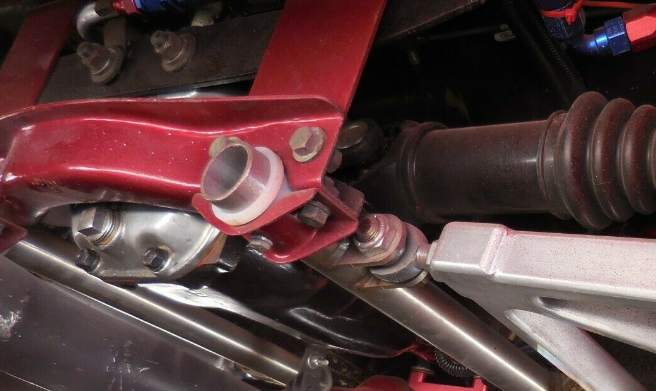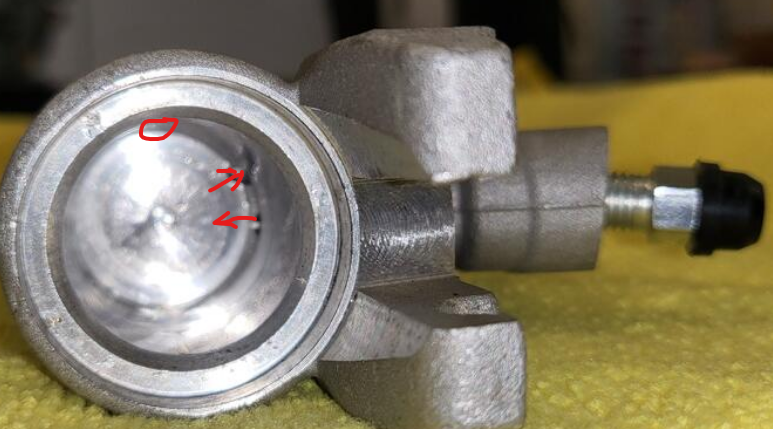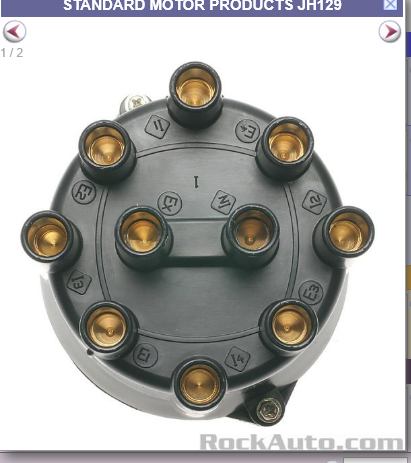Everything posted by Zed Head
-
Bearings described
Came across this guy's youtube channel and he seems to know his stuff. There are other good videos but here's a general one that might be worth watching.
-
280z ecu's
Different manufacturers making the same design. There have been a few discussions about the differences but it seems that any ECU from 75 to through 78 will work on any EFI engine. I tried the range, except 77, on my 76 and they all worked. The 78 ECU did crap out on me after a short drive, but I think that's why the car was being parted out. The one thing that won't work without the proper ECU is the altitude fuel adjustment. Here's another ECU link.
-
What car does this fit?
The short one looks familiar. 280Z. Looks in decent shape, hang on to it. They get crunched by curbs and shrubs and floor jacks. Part #10. http://www.carpartsmanual.com/datsun/Z-1969-1978/body-260z-280z/2-seater/radiator-grille-bumper/from-aug-76
-
Z's on BAT and other places collection
470 HP, wide tires, and an R180. I think it's a show car, not a go car. "Powered by a 400 cu in 470 hp Blueprint built small block Chevy"
-
83 280zx parking lights don't work
- Ignition wire
Might be shown un one of the 71 240Z diagrams. Use your meter on that forked black wire and see if it's a ground wire. https://www.classiczcars.com/files/category/1-wiring-diagrams/- Metal in oil
Check your camshaft and rocker arms. Could also be timing chain or sprocket.- starter fusible link
Actually he did have an Austin Healey before he had a family. Positive ground? But he had plenty of good old America iron after that and did all his own maintenance. I think he was creating a "teaching" moment.- starter fusible link
That's not obvious!- starter fusible link
That might be confusing. There's a forked lug on the condenser case too. The case of the condenser goes to ground. The guts get the positive. My first experience with positive and negative was when I was installing a radio in my car. It came with a condenser and I asked my father how it was supposed to be connected. He is an electronics engineer. He told me to connect the case to positive and the free wire to ground (pretty pretty pretty sure that's what he said). It blew the guts out in my face like a firecracker. Ha ha ha hah. Had to go all the way to Radio Shack to get a new one. This thought crossed my mind. Positive terminals/wires should never ever be connected to the case of anything. Cases and covers and housings are always ground.- starter fusible link
There's a forest of burning smoking wires out there. Scary.- Putting in a replacement L-28
Wise words above. Mayolives has learned a tough lesson.- 83 280zx parking lights don't work
- Fusible Links Smoking
They worked! Yay. The melting (fusing) process can be incomplete. Even a single strand of wire remaining will show continuity so that not a good sign of viability for future use. Check the fusible link for the EFI system also. It's connected to the positive post at the battery. 78 used two greens side-by-side, exposed. Also make sure that you didn't get the EFI wires switched. They used the same type of connectors for negative and positive. (Genius!). Hopefully you didn't fry the ECU. All of the things you touched have the possibility of reversed positive and ground. Even at the starter. These old Z's are well known for using red and black indiscriminately on the big cables, for some odd reason.- Bleeding rear brakes
Your points are all good ones. The pulling of air through the seal would depend on the balance between the rate of pull (the spring force of the spring behind the piston) and the viscosity and availability of the fluid through the tube from the reservoir. And the tightness of the seal on the piston. So, lots of other variables besides luck. But it's something to be aware of. I think that the same things apply to vacuum versus pressure for brakes. If you pump your vacuum chamber way down to close to true vacuum you're more likely to suck air past the seal I'd guess. And, applying all of this to the "corner" theory, you can see that a slow fluid flow to avoid sucking air could lead to leaving corner bubbles behind. In sum, considering all, for me, a shovel handle against the seat back remains my preferred method.- Putting in a replacement L-28
Oops. I had the wrong year. Like yarb said, the cars with external regulators used a single prong oil pressure sensor. Round. You can put a flat terminal on that wire and just use the sensor terminal on yours. The other terminal is a switch. Don't know on the other wire.- Bleeding rear brakes
The picture reminds me of another way to bleed cylinders - work the system in reverse, from the end. I did that on the clutch slave cylinder. You can open the bleed screw and push the piston backward with finger pressure. That drives the fluid out of the bleed hole, then when you close the bleed screw, it pulls new fluid in from the reservoir. You can also unbolt the cylinder so that it has the screw hole oriented upward. This is in the same vein as pressure versus vacuum versus mechanical.- Bleeding rear brakes
This is the main problem with bleeding brakes. cgsheen1's pictures show that it could still be a concern. The "calipers on the wrong side" issue is an example of a large "corner" in the flow path of the fluid. The rear wheel cylinder picture shows a small corner. Really you're talking about dead zones that don't get swept by the fluid and are higher than the flow path of the fluid as it moves to the bleed port. That's where the bubbles go. Be the bubble. If you had cgsheen1"s cylinders you might want to lift the side your bleeding waaay up in the air before starting.- 280z propeller shafts with 4 speed
They are. But that's probably a very early 240Z shaft used on the cars with the forward-set differentials. Those used a shorter propeller shaft. People use them with the 71C transmission conversion, but they're too short for a stock 280Z coupe with a 71B transmission. Edit - actually I think that it would work but you'd lose that inch of engagement with the transmission. I think it might be closer to 1 1/2" if I recall right.- Bleeding rear brakes
Maybe that's a reason people have problems bleeding Z brakes. You can imagine a pressure or vacuum bleeder that's moving fluid slowly leaving some air behind. I put speed bleeders on the back mainly because I wanted to purge the lines of old fluid easily but it might have helped me avoid some problems also. And, are those aftermarket cylinders? Might not be representative of Nissan. But, it does show angled drilling, maybe they just didn't get the angle right. Might be some guy on an assembly line eyeballing it. Thanks for the informative pictures.- Bleeder screws pitch?
I used a broken shovel handle and the seat back. It worked surprisingly well, several times. Make sure the vinyl of the seat can handle the handle end though. Don't want new cracks. Crack bleed screw, press brake pedal down with shovel handle, prop against seat back, close bleed screw, release handle. If the clear tube is set up with an upward curve you can see if any air bubbles came out.- Found a FS5W71B but I could use some advice.
I did not know this. I've seen the Z series in the wrecking yards but never noticed that it was tilted the other way. Wonder why they did that. They have two spark plugs per cylinder also and 8 terminals in the distributor cap. It's an odd engine. Apparently they were called NAP-Z here in the states. https://en.wikipedia.org/wiki/Nissan_Z_engine Note: All USDM gasoline Z20, Z22 and Z24 engines were known as NAPS-Z (NAPZ or NAPS-Z Nissan Anti-Pollution System), NAPZ motors had dual spark-plugs (two per cylinder) except the pre-82 versions and latest versions of the Z24i as fitted to the Pathfinder. All NAPZ engines sold in California reportedly had dual plug heads regardless of the year.- Mechanical fuel pump flow rate
I can't think of a single time where I've read about the need for a higher capacity mechanical pump. Never read of any engine running lean because the mechanical pump couldn't keep the float bowls full. It might be a thing but I've never heard of it happening. A mechanical pump delivers a certain volume of fuel with each pump, and the pumps are tied to each engine revolution which also pumps about the same amount of air. Doesn't really help your quest but I don't think that you can make a direct comparison between the two types of pump. One's capacity increases automatically, the other's is constant.- Mechanical fuel pump flow rate
Doesn't it depend on engine RPM? It's eccentric actuated.- Found a FS5W71B but I could use some advice.
You might not have the time but this guy went way deep in to all of the 5 speed details. https://forums.hybridz.org/topic/110792-high-rpm-shifting-dynamics/#comments - Ignition wire
Important Information
By using this site, you agree to our Privacy Policy and Guidelines. We have placed cookies on your device to help make this website better. You can adjust your cookie settings, otherwise we'll assume you're okay to continue.









